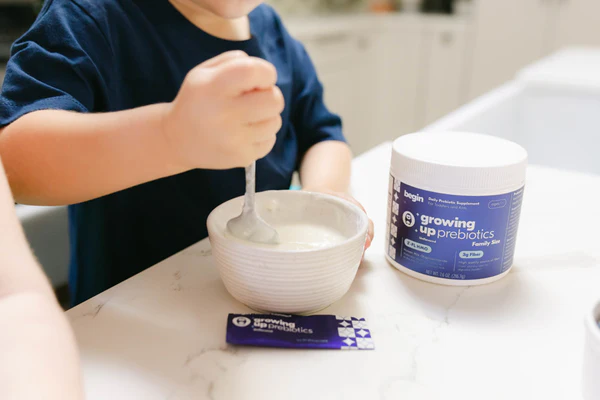In the world of gut health, prebiotics and probiotics are two terms that often come up. While they may sound similar, they serve different roles in promoting digestive health. Understanding the difference between prebiotics and probiotics is essential for anyone looking to improve gut health. While both play crucial roles in supporting digestion and overall wellness, they serve different functions in the body. This post will explore what prebiotics and probiotics are, how they work, and their respective roles in improving your digestive system.
What are probiotics?
Probiotics are live bacteria that are good for your health, particularly your digestive system. When you ingest them, they help balance the gut flora, which is like a little garden inside your gut. When the gut is healthy, it can lead to better digestion, improved immune function, and even a boost in mood. Common sources of probiotics include yogurt, kefir, sauerkraut, and other fermented foods as well as in supplement form from reliable sites like supplementfirst.com.
What are prebiotics?
On the flip side, we have prebiotics. These aren’t bacteria themselves, but rather the food that those beneficial bacteria eat. Prebiotics are mostly non-digestible fibers that help probiotics grow and thrive. They can be found in bananas, onions, garlic, and whole grains. Prebiotics help maintain a healthy gut environment by encouraging the growth of good bacteria while keeping harmful bacteria in check. In this way, prebiotics help improve digestion, boost immune function, and enhance the absorption of essential nutrients like calcium and magnesium.
How they work together
Though prebiotics and probiotics are distinct in their roles, they work synergistically to support a healthy digestive system. Prebiotics provide the necessary food for probiotics to thrive, ensuring that the beneficial bacteria introduced into the gut can establish themselves and multiply. Without sufficient prebiotic intake, probiotics may not survive long enough in the digestive tract to provide their full benefits. This harmonious relationship is sometimes referred to as a “symbiotic” effect, where the combination of both prebiotics and probiotics offers enhanced gut health benefits. For optimal digestive health, it’s important to include both in your diet, whether through food sources or supplements. Eating a varied diet rich in fiber, fermented foods, and whole grains can ensure that you’re getting enough of both.

Why is gut health important?
Having a healthy gut is more than just avoiding tummy troubles. It’s linked to your immune system, mental health, and even your skin. A well-functioning gut can help prevent issues like irritable bowel syndrome, allergies, and mood disorders. A healthy gut microbiome can improve mood, reduce anxiety, and support cognitive function. Additionally, a balanced gut may contribute to better weight management. This is partly because a healthy gut supports better nutrient absorption and metabolism.
How to include them in your diet
Getting enough prebiotics and probiotics doesn’t have to be complicated. Start with simple food swaps. For probiotics, choose yogurt or add kimchi to your meals. For prebiotics, try munching on a banana, or mixing some garlic into your dishes. Just a small change can make a big difference in your gut health.
Prebiotics and probiotics play unique but connected roles in your digestive health. By understanding what each does, you can make informed choices that support your gut. By incorporating both into your diet, you can ensure that your gut is getting the support it needs for optimal health. Remember, a healthy gut means a healthier you.



